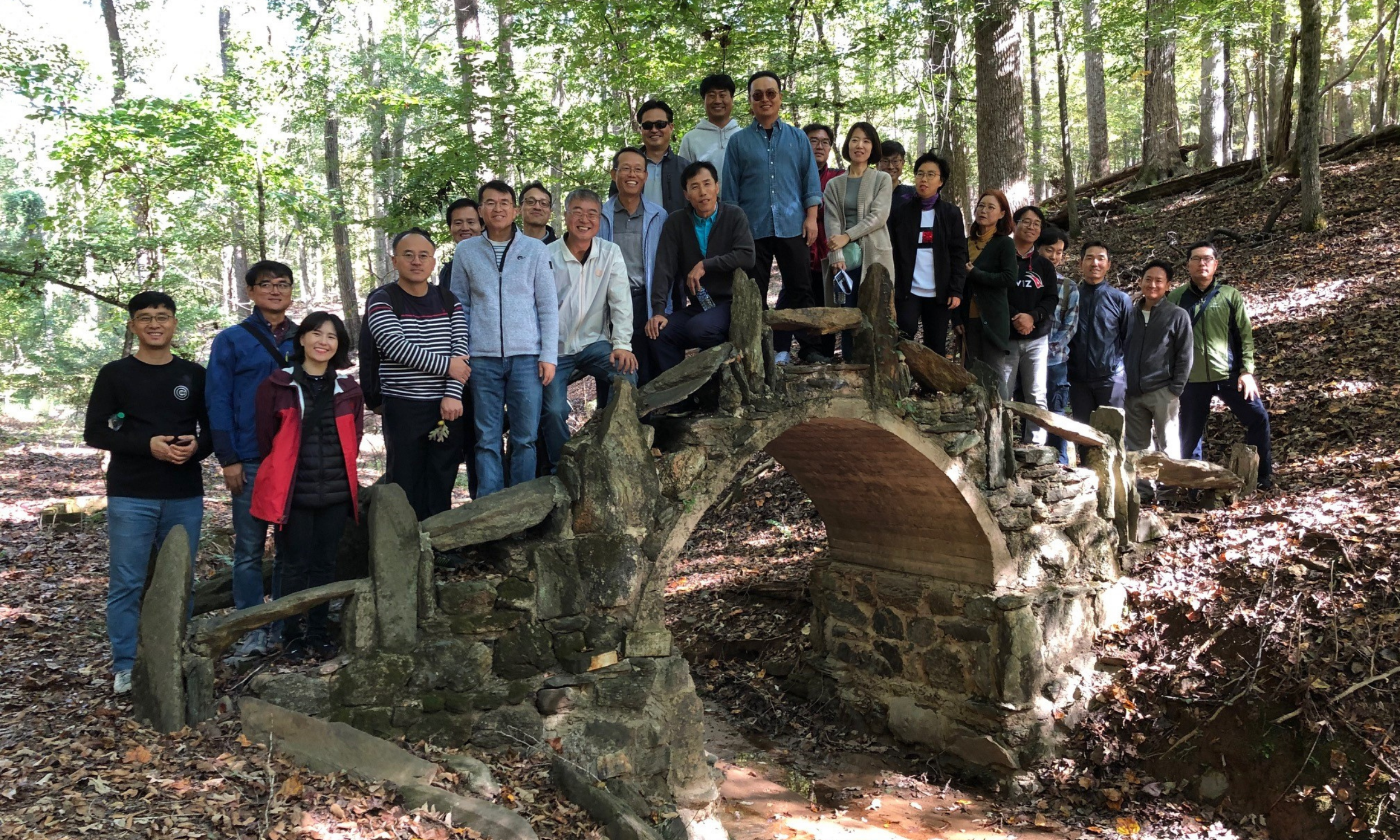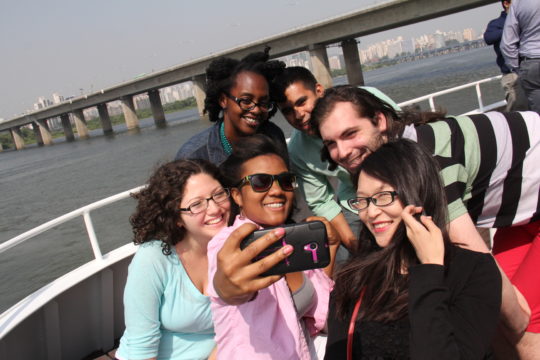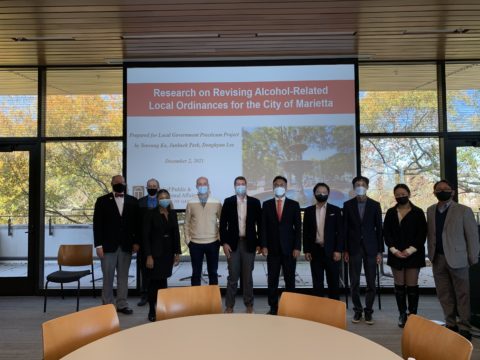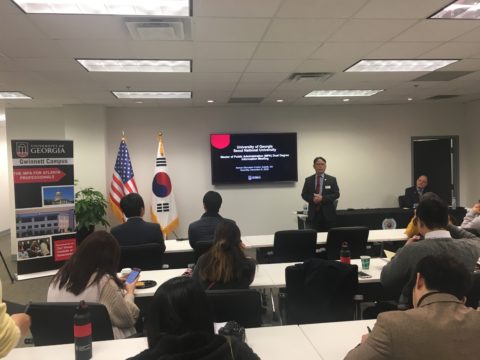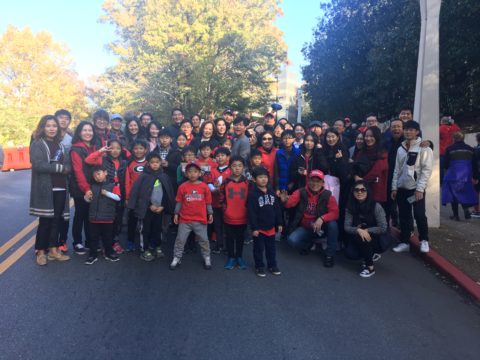BIRTH OF THE KOREAN PARTNERSHIP
The history of this alliance began in the CVIOG International Center for Democratic Governance. In 1998, government officials in the Korean city of Busan reached out to CVIOG, asking to be hosted for one to two years.
“Typically, people would search on the internet and find universities that had good public administration programs,” said Rusty Brooks, who, as the then-director of CVIOG’s International Center, welcomed the delegation. Others followed, and soon Korean government officials outnumbered other international guests.
One such decorated public servant, Indong Cho, now the vice mayor of Seoul, proved to be a pivotal figure in this growing partnership. Cho, who earned his Masters of Public Administration (MPA) from UGA in 1996, returned in 2004 as a visiting researcher at the International Center, and came back a third time in 2012.
“No Korean official had ever visited the same U.S. university twice,” said Brooks, who has taught PADP classes and mentored its students. “He had a very strong affection for the university, the MPA program, and for CVIOG. He saw CVIOG as something he would one day like to see happen in Korea.”
This affection led Cho to approach Brooks on the possibility of a formal visiting scholar program between the Korean government and UGA.
“From there, everything exploded,” Brooks recalled. “He was very influential in Seoul, so many of our early visitors were very high officials, at the director-general level. He put the word out all over Korea and made introductions at the ministry level. We got interviews with the Governor’s Association of Korea and the Korean Association for Public Administration (KAPA).”
With Cho’s help, the Korean visitors grew in both number and stature.
“I can easily say that the most significant relationships were in Korea, because of the level of people we were hosting and the professionalism and scholarship they exhibited during their visits,” said Brooks. “They then took that back and put it into policy and practice in Korea.”
Recent visiting scholar Dr. Jeongkwon Cho, former director of the National Assembly Library in Korea, is one such notable participant.
“I chose UGA because it was a leading university, with an innovative and progressive academic community and a well-known organization of outreach services,” Cho said. “Significantly, the School of Public and International Affairs is very popular in Korea and has a great reputation.”
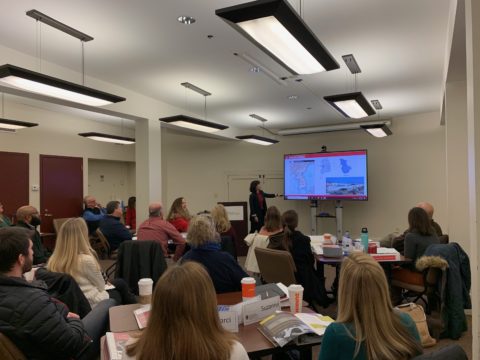
2020 UGA Korean Visitor Program Presentation at PSO Leadership Academy
Chon-hong Kim, vice superintendent of the Jeollanamdo Office of Education, visited UGA to advance his understanding of education policy.
“I have conducted research on Korea’s mid- and long-term education policy agenda,” said Kim. “I compared the [U.S.] education system with that of Korea, to find out what needs to be considered for Korea’s education policy agenda as it faces rapid technological progress and demographic change. . . I was deeply impressed by the role of state universities with land grants. This gave me insights for the education administrators of Korea.”
Meanwhile, the International Center arranged its own delegation, sending Georgians, including the Athens city manager and director of economic development, to visit Korea. They were hosted by major Korean officials and came to appreciate UGA’s strong alliance with this key U.S. partner nation in the Far East.
